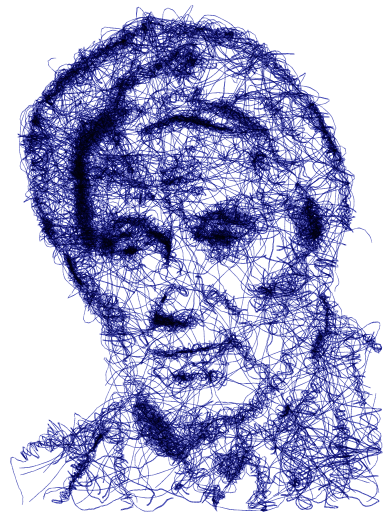Biography of Georges Charpak, physicist (1924–2010)

Georges Charpak was a French physicist of Polish origin, awarded the Nobel Prize in Physics in 1992 for his work on high-energy particle detectors. After studying at the École des Mines de Paris, he joined the CNRS and then CERN, where he revolutionized particle detection with the invention of the multiwire proportional chamber in 1968. His innovation enabled major advances in nuclear physics and medical imaging. A member of the French Resistance during World War II, he was arrested and interned at Dachau before being liberated. Passionate about knowledge transmission, he actively promoted science and education. His scientific and humanist legacy remains highly influential. In 1946, he resided at the Fondation Rosa Abreu de Grancher at the Cité internationale universitaire de Paris.
Improving our society is always possible... Fraternity, above all, means not abandoning those left behind.
A poem-chair
“I adopted the chair, this familiar object, a few decades ago, at a time when I wanted to create art on a human scale in public spaces, while everywhere else people opted for the monumental: it is an object shaped like the body and serves the body. It is difficult to feel exclusive ownership of an object so universally shareable. It is mine when I occupy it, but if I leave it, someone else can claim it as their chair.” Michel Goulet, artist-sculptor
The project Prendre position
Prendre position is a sculpture-installation project of 47 chair-poems to mark the 100th anniversary of the Cité internationale universitaire de Paris. They were installed in a flowered meadow created especially for the occasion by the campus estate service.
This artistic installation was conceived by the Quebecois artist-sculptor Michel Goulet, in collaboration with François Massut, founding director of the collective Poésie is not dead.
Each house on the campus is represented by a chair, thanks to a donation from the Maison des étudiants canadiens and the support of the Labrenne group. Each of the 47 chairs is a unique work.
History and architecture of the house
The Fondation Rosa Abreu de Grancher was designed by architect Albert Laprade, originally to house Cuban students in Paris. It was funded by Pierre Sanchez Abreu and his sister Rosalia. Its architecture is inspired by the Havana Cathedral and certain features of Cuban architecture.